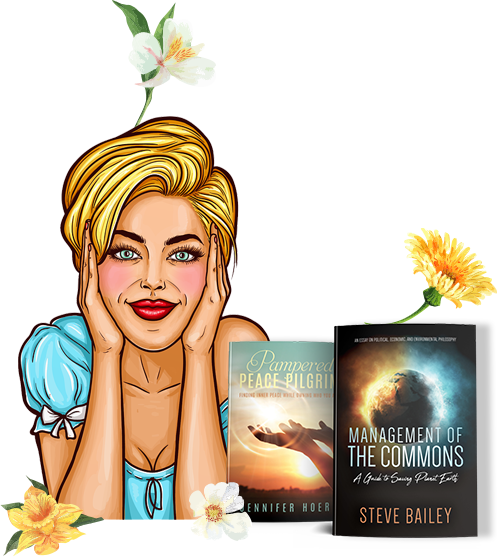
Table of Contents
ToggleIntroduction
Crime fiction remains one of the most commercially resilient genres in publishing. From psychological thrillers to cozy mysteries, from gritty police procedurals to hardboiled noir, readers keep turning pages for high stakes, puzzles, and justice served. If you’ve completed a crime manuscript in 2025, there are genuine opportunities to find a publishing home, if you know where to look and how to pitch.
This deep-dive guide explores the top crime fiction publishers currently accepting submissions, explains how the crime publishing ecosystem works, and walks you through the strategies that increase your odds of getting noticed. Whether you’re a debut author or looking for a new home for your series, this resource will help you target the right presses with a polished, market-aware submission.
How Crime Lists Work in 2025
Publishers don’t buy books randomly; they curate “crime lists” to meet specific reader expectations. These lists are often divided into subgenres:
- Cozy Mysteries – Light in tone, community-focused, with little to no on-page violence.
- Police Procedurals – Investigations led by law enforcement, heavy on authenticity.
- Psychological Thrillers – Character-driven, suspenseful, and emotionally intense.
- Noir and Hardboiled – Dark tone, morally complex characters, gritty settings.
When your submission lands, an editor’s first thought isn’t “Is this good?” but “Does this fit our list, and can we sell it?” By clearly signalling your subgenre, series potential, and audience, you help them answer yes.
Digital-first models dominate discovery, especially for thrillers and procedurals, where fast release schedules and algorithm-driven marketing can launch a series quickly. Meanwhile, cozies and traditional mysteries still perform strongly in print, bolstered by library distribution. Audio rights are increasingly valuable, with some publishers producing in-house and others licensing to audio specialists.
Preparing Before You Query
Manuscript Readiness
Your draft must be nearly publish-ready. Crime readers are sharp; procedural inaccuracies or implausible timelines can ruin credibility. Consult experts or reliable sources for police procedure, forensics, or legal elements. Maintain internal consistency in your fictional universe.
Query Packet
Most publishers request:
- A concise, 350–400 word query letter.
- A one-to-two-page synopsis revealing all key plot twists and the ending.
- Either the first three chapters or the full manuscript, depending on their guidelines.
If pitching a series, include a brief paragraph on future instalments, two or three sentence-long case summaries are enough to show longevity.
Positioning and Comps
Use recent comparative titles. One comp should match tone, the other structure or pacing. This shows you understand your market and where your book fits.
10 Crime Fiction Publishers Accepting Submissions in 2025

Crime Fiction Publishers Accepting Submissions in 2025
10 Crime Fiction Publishers Accepting Submissions in 2025
1. Vox Ghostwriting
Vox Ghostwriting has built a strong reputation for pairing authors with top-tier editors who know how to shape a manuscript for both commercial and critical success. Their open-door submission policy makes them accessible to debut authors, and they welcome a wide range of crime fiction, from cozy, small-town mysteries to international thrillers with global stakes. Vox Ghostwriting is known for actively developing author brands, often working on multi-book series that allow characters and readership to grow together. Their marketing team leverages both traditional publicity and targeted digital campaigns to ensure titles reach the right audience quickly.
Submission guidelines: Full manuscript for novels, synopsis, and query letter.
Website: https://www.voxghostwriting.com/publishing-consultancy/
2. Joffe Books
One of the fastest-growing independent publishers in the UK, Joffe Books dominates the digital-first crime fiction market. Their streamlined acquisition-to-publication process means books can reach readers within months rather than years. They specialize in commercial thrillers, police procedurals, and psychological suspense that hook readers from the first chapter. Joffe Books is highly data-driven, using sales analytics to fine-tune cover design, pricing, and promotional timing. This approach has propelled several authors to bestseller lists on Amazon and in Kindle Unlimited. They actively seek unagented authors with series potential, particularly those willing to publish multiple books per year.
Submission guidelines: Unagented submissions welcome; synopsis and first three chapters via email.
Website: https://joffebooks.com
3. Seventh Street Books
As an imprint of Start Publishing, Seventh Street Books has carved out a niche for thoughtful, well-crafted mysteries and thrillers. They balance commercial appeal with literary quality, publishing authors who can deliver compelling plots alongside strong characterization. Many of their titles have won or been shortlisted for major crime writing awards, including the Edgar and Anthony Awards. They are particularly interested in distinctive narrative voices and unique investigative angles, whether that’s an unconventional detective, an unusual setting, or a new twist on a familiar trope. While they prefer agented submissions, they do occasionally consider unagented work that aligns with their brand.
Submission guidelines: Query with synopsis and sample chapters. Prefers agented submissions but will review unagented work selectively.
Website: https://www.seventhstreetbooks.com/submission-guidelines/
4. Lume Books
London-based Lume Books publishes across genres but has a growing reputation in crime fiction, particularly historical mysteries and contemporary thrillers with strong UK and international appeal. Their backlist includes both debut authors and established writers looking for a new publishing home. Lume focuses on high-quality editorial work and international rights sales, helping authors break into foreign-language markets. They distribute in both print and digital formats, with an eye toward library sales and online retail. Their openness to well-researched historical crime makes them a great choice for authors writing in niche time periods.
Submission guidelines: Synopsis, author bio, and first three chapters.
Website: https://www.lumebooks.co.uk/submissions/
5. Sapere Books
Sapere Books has a distinct focus on historical fiction, including period-set mysteries and detective stories. They value meticulous research, strong sense of place, and immersive historical detail, whether the setting is ancient Rome, Victorian London, or mid-20th century Europe. Sapere is also known for reissuing out-of-print classics, giving forgotten crime gems a second life. Their editorial team works closely with authors to ensure historical authenticity while maintaining pacing and suspense. Sapere has a loyal readership that appreciates both new works and rediscovered classics, making them an ideal partner for authors writing within the historical crime niche.
Submission guidelines: Full manuscript and synopsis via email; unagented submissions welcome.
Website: https://saperebooks.com/about/submissions/
6. Level Best Books
Based in the United States, Level Best Books operates multiple imprints dedicated to mystery, thriller, and crime fiction, including both contemporary and historical works. They have a reputation for nurturing debut authors and helping them establish multi-book series. Each imprint has its own submission windows and editorial focus, ensuring manuscripts are reviewed by the right team. Their distribution network ensures wide availability across print, ebook, and library channels. Level Best also supports its authors through marketing collaborations and attendance at mystery conventions such as Bouchercon and Malice Domestic.
Submission guidelines: Query letter, synopsis, and first three chapters during open windows.
Website: https://www.levelbestbooks.us/submissions.html
7. Verve Books
Verve Books focuses on fresh, character-driven crime fiction with a modern sensibility. Their titles often feature diverse protagonists, urban settings, and socially relevant themes woven into suspenseful narratives. As a digital-first publisher, Verve is agile and able to get books to market quickly while still maintaining strong editorial standards. They prioritize author visibility, offering guidance on building an online presence and engaging with readers directly. Their catalogue includes everything from gritty police thrillers to psychological suspense with a literary edge.
Submission guidelines: Submit via their online form with synopsis and sample chapters.
Website: https://vervebooks.co.uk/submissions/
8. Fahrenheit Press
Self-styled as the “punk rock” of crime publishing, Fahrenheit Press seeks unconventional voices and stories that push against genre boundaries. Their books often blend noir grit with humor, or take familiar tropes in unexpected directions. Fahrenheit Press is unapologetically bold in branding and marketing, cultivating a loyal niche audience that appreciates their distinctive aesthetic. They publish both print and digital editions and are particularly supportive of authors who want to maintain creative control. This makes them ideal for crime writers with an offbeat sensibility or a story that doesn’t fit neatly into traditional publishing boxes.
Submission guidelines: Email synopsis and first three chapters.
Website: https://fahrenheit-press.com
9. Crooked Lane Books
Crooked Lane Books is a U.S.-based publisher with strong distribution through major trade channels, making their titles widely available in bookstores and libraries. They publish a broad spectrum of mysteries, thrillers, and suspense novels, often with strong series potential. Many of their authors have achieved notable success in library lending programs and have earned starred reviews in industry publications. Crooked Lane places significant emphasis on building an author’s career over multiple books, making them a strong option for writers with a long-term vision for their characters and settings.
Submission guidelines: Primarily agented, but occasionally accepts unagented queries via their website.
Website: https://crookedlanebooks.com
10. Hard Case Crime
Hard Case Crime is instantly recognizable for its retro pulp-style covers and dedication to noir and hardboiled storytelling. They publish both original novels and rediscovered classics from authors like Stephen King, Lawrence Block, and Mickey Spillane. Hard Case Crime titles are celebrated for their high-octane plots, morally complex characters, and rich atmosphere. Their editorial team has a deep understanding of pulp and noir traditions, making them a top choice for authors working in these styles. Distribution through major outlets ensures strong visibility in both genre and mainstream markets.
Submission guidelines: Synopsis and first chapter; query via email.
Website: http://www.hardcasecrime.com
How to Pitch So Editors Keep Reading
Hook for the Back Cover
Start your query with a one-sentence hook containing protagonist, goal, obstacle, and stakes.
Example: “When a small-town librarian is accused of murdering the mayor, she must clear her name by solving the town’s darkest secrets, before the killer strikes again.”
Synopsis as an Investigative Map
Crime fiction synopses should clearly show the chain of cause and effect, reveal the ending, and make motivations explicit.
Show Series Runway
Even standalones benefit from indicating series potential, recurring detectives, compelling settings, or thematic arcs.
Strong Opening Pages
Engage the reader from line one with action, intrigue, or high-stakes discovery. Crime fans expect movement early.
Current Crime Fiction Trends in 2025
- True crime-inspired plots are increasingly popular, often reimagined in fictional form.
- Cross-genre mashups like crime plus speculative elements are gaining traction in digital markets.
- Diverse sleuths and settings are in demand, moving beyond the usual metropolitan hubs.
- Shorter novels (50–65k) work well for serialized ebook markets.
Smart Query Sequencing
- Tier your targets – Start with publishers that specialize in your subgenre.
- Send in batches – Query 5–7 at a time, adjust based on feedback or rejections.
- Manage exclusives – Only offer exclusive submissions if the publisher’s track record justifies the wait.
Avoidable Rejection Triggers
- Mislabeling your subgenre.
- Procedural inaccuracies.
- Out-of-range word counts (crime usually 80–100k words).
- Accepting contracts with unfair terms or fees.
What Happens After “Yes”
- Editorial: Expect developmental edits for pacing, plot logic, and accuracy.
- Design & Positioning: Cover design tailored to subgenre conventions.
- Marketing: Digital ads, retailer algorithms, library sales, review outreach.
- Career Planning: Discuss long-term vision, series expansion, and cross-subgenre opportunities.
Final Thoughts
The crime fiction market rewards precision, in storytelling and in submissions. Match your manuscript to the right publisher, follow their guidelines exactly, and present your story as an irresistible fit for their list. Whether your detective prowls neon streets or sunlit villages, there’s a publisher in 2025 ready to take the case.
Disclaimer: The publishers listed here are provided for informational purposes only. We are not affiliated with any of these companies and do not guarantee inclusion, ranking accuracy, or any outcomes related to working with them. Our services focus on helping authors through professional editing, formatting, and marketing support. Always verify company details, services, and submission guidelines directly on the publisher’s official website before proceeding.





